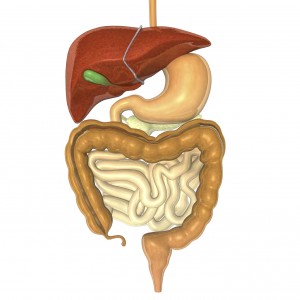
It is a vestigial organ which means that it serves no purpose because it lost all of its function through the evolutionary process. Despite being vestigial, the appendix can still be a nasty piece of work when it becomes inflamed – have you heard of appendicitis?
Appendicitis is the inflammation of the appendix thought to be caused by either food or faecal matter becoming lodged within it. It is a medical emergency and you should seek medical help immediately.
The symptoms of appendicitis include:
• Dull pain centred around the navel, which progresses to a sharp pain in the lower right side of the abdomen
• Pain in the lower back, hamstring or rectum
• Fever
• Vomiting
• Diarrhoea or constipation
• Loss of appetite.
If not treated, the appendix will burst and infected matter will flood the abdominal cavity. This usually occurs around 36 hours after the onset off the infection and the signs include a worsening of the initial symptoms. A perforated appendix requires immediate medical attention and is life-threatening if left unattended.
The most common treatment for appendicitis is an appendectomy. An appendectomy involves the removal of the appendix through keyhole surgery. Removing the appendix seems to have no effect on the workings of the digestive system.
An alternative treatment is the use of antibiotics. Around 70 per cent of appendicitis cases do resolve with antibiotic therapy but the removal of the appendix is the best option. Antibiotic treatment is usually reserved for patients that are too frail to undergo surgery.
If you or anyone you know is experiencing the symptoms of appendicitis it is very important that a healthcare professional is consulted.
*Charles Darwin, often coined as ‘the father of evolution’, suggests that the appendix is now vestigial because it was originally used in digesting leaves.




Comments are closed.